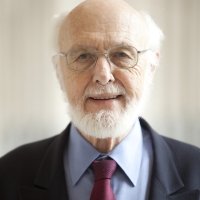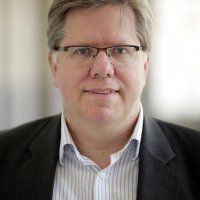Foreign Policy Challenges in 2010: The Developing World
2010 has the potential to bring important changes in the relationship between the United States and the developing world. In the first session of a Wilson Center on the Hill two part series, Wilson Center experts discussed policy challenges surrounding the developing world. The panelists discussed legislative and Administration proposals to reform U.S. development policy; the impact of the current economic crisis on immigrants and the prospects for immigration reform; the developing country perspective on global climate negotiations, and the critical role of conflict resolution as a basis for sustainable development.
Michael Van Dusen, Executive Vice President of the Wilson Center served as moderator of the discussion and noted at the outset that when it comes to development it is important to remember that the U.S. cannot do it all and must work with others. On the other hand, the U.S. is in a position to take the leadership role in many areas. The U.S. has the capability to deal with the logistical challenges and is able to bring personnel and supplies to many areas. The current humanitarian crisis in Haiti is a good example.
Maria Ivanova, a Wilson Center Fellow associated with the Wilson Center's Environmental Change and Security Program and an Assistant Professor of Government and Environmental Policy at the College of William and Mary , noted that when it comes to climate change there has been some leadership on a local level, but what is really needed is leadership on a global level. The United States was a leader in the establishment of many U.N. organizations in the 1970s, and Ivanova noted that the U.S. once again can play a similar role when it comes to climate change. The U.S. can take the lead by 1) rebuilding trust through open dialogue and fulfilling its financial and other commitments; 2) taking the lead in rethinking institutions; and 3) reinvigorating institutional, individual and governmental leadership.
Ivanova, who attend the recent climate change negotiations in Copenhagen, noted that they were "a success because it was a failure." The negotiations exposed the serious underlying problem, which is the failure of the political and bureaucratic systems.
Amos Sawyer, Public Policy Scholar, and Chairman of the Liberian Governance Reform Conference noted that President Obama's speech in Ghana was important, as it challenged Africans to take responsibility for the their own development. Quoting President Obama, he said that "partnerships for mutual prosperity grounded in mutual responsibility" are critical to helping the continent move forward. The key, Sawyer noted, is developing governance institutions on both the regional and sub-regional level that are accountable, transparent and just.
One of the greatest challenges when dealing with Africa is the reality of failed and failing states. Many of these countries become safe havens for terrorists, increasing the security threat in the region. Sawyer noted that it will be important to focus on the youth in these countries. When he was sixteen, Sawyer was educated by Peace Corp volunteers. His educational experience had a major impact on his life and his view of the United States. He noted that "the Peace Corp is the finest U.S. Foreign Policy" and suggested that expanding the Peace Corps would be an important step to helping change the world's view of the United States. Van Dusen stated that there is a push to increase the size of the Peace Corp, but the funding has not been secured.
Mexico not only affects U.S. foreign policy but it also affects domestic policy according to Andrew Selee, director of the Wilson Center's Mexico Institute. "No country has a greater day-to-day impact on life in the U.S. than Mexico." Selee noted that the economies are interwoven with Mexico being the number two destination for U.S. exports and two thirds of foreign direct investment in Mexico is coming from the U.S. On the other hand, 50 percent of Mexicans are currently living in poverty, which makes it very attractive to immigrate to the United States where they can earn five times as much as they can in Mexico. The other significant factor in the U.S.-Mexico relationship is the drug trade, which is no estimated to be a $60B per year industry.
What does this mean for U.S. policy on Mexico and the other developing countries in the hemisphere. It will be important for not only the U.S. and Mexico but for the entire region to manage shared problems on a collective basis. The current crisis in Haiti is, for example, an excellent opportunity for regional cooperation. Before the earthquake, Brazil and Chile were leading the peacekeeping mission there. This is one of only a few occasions where a country in the southern hemisphere intervened in another country in the region. The current relief effort in Haiti is led by the U.S. with support from various countries, both within and outside the region, but in the future it will be in the shared interest of all that Brazil and Chile resume their leadership roles.
Wilson Center Senior Scholar, John Sewell, stressed that to be a leader on development issues the United States will need reform its own policy. There are three main entities in the government that function almost independently of each other on development policy, the Department of State, the White House, and the Congress. Sewell stressed that an effective development policy requires government-wide goals and objectives that are clear and coordinated across agencies and branches – just "tinkering" with organizations and budgets will not be sufficient. The U.S. has been involved in development in various parts of the world for some time; it needs to incorporate the lessons learned over the past 60 years into future policy.
The face of development work has changed and the U.S. must adapt. Sewell noted that the U.S. is now just one of many state players in the development game. There is also an increased presence of non-governmental organizations. Sewell stated that right now there is an opportunity to reform development policy , it will be imperative that we do not waste it.
Drafted by Elizabeth Byers.
Speakers

Associate Professor of Global Governance, University of Massachusetts Boston

Former President of the Overseas Development Council (ODC)
Chairman, Liberian Governance Reform Commission
Former Senior Advisor to the President for Alumni Relations, Woodrow Wilson Center; Former Executive Vice President and Chief Operating Officer, Woodrow Wilson Center

President, Migration Policy Institute
Hosted By

Environmental Change and Security Program
The Environmental Change and Security Program (ECSP) explores the connections between environmental change, health, and population dynamics and their links to conflict, human insecurity, and foreign policy. Read more


Africa Program
The Africa Program works to address the most critical issues facing Africa and US-Africa relations, build mutually beneficial US-Africa relations, and enhance knowledge and understanding about Africa in the United States. The Program achieves its mission through in-depth research and analyses, public discussion, working groups, and briefings that bring together policymakers, practitioners, and subject matter experts to analyze and offer practical options for tackling key challenges in Africa and in US-Africa relations. Read more


Latin America Program
The Wilson Center’s prestigious Latin America Program provides non-partisan expertise to a broad community of decision makers in the United States and Latin America on critical policy issues facing the Hemisphere. The Program provides insightful and actionable research for policymakers, private sector leaders, journalists, and public intellectuals in the United States and Latin America. To bridge the gap between scholarship and policy action, it fosters new inquiry, sponsors high-level public and private meetings among multiple stakeholders, and explores policy options to improve outcomes for citizens throughout the Americas. Drawing on the Wilson Center’s strength as the nation’s key non-partisan policy forum, the Program serves as a trusted source of analysis and a vital point of contact between the worlds of scholarship and action. Read more


Mexico Institute
The Mexico Institute seeks to improve understanding, communication, and cooperation between Mexico and the United States by promoting original research, encouraging public discussion, and proposing policy options for enhancing the bilateral relationship. A binational Advisory Board, chaired by Luis Téllez and Earl Anthony Wayne, oversees the work of the Mexico Institute. Read more
